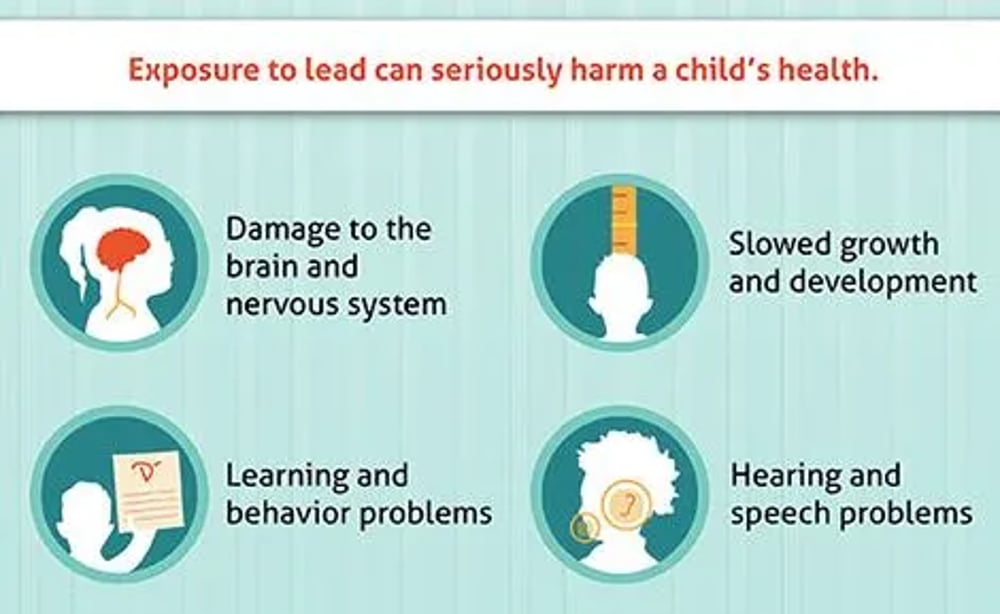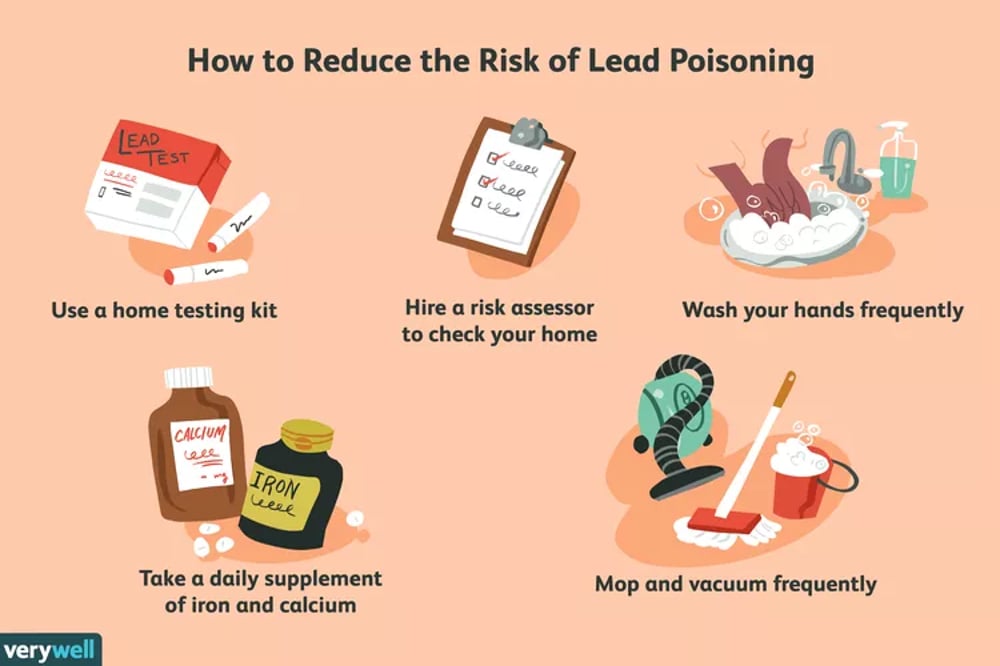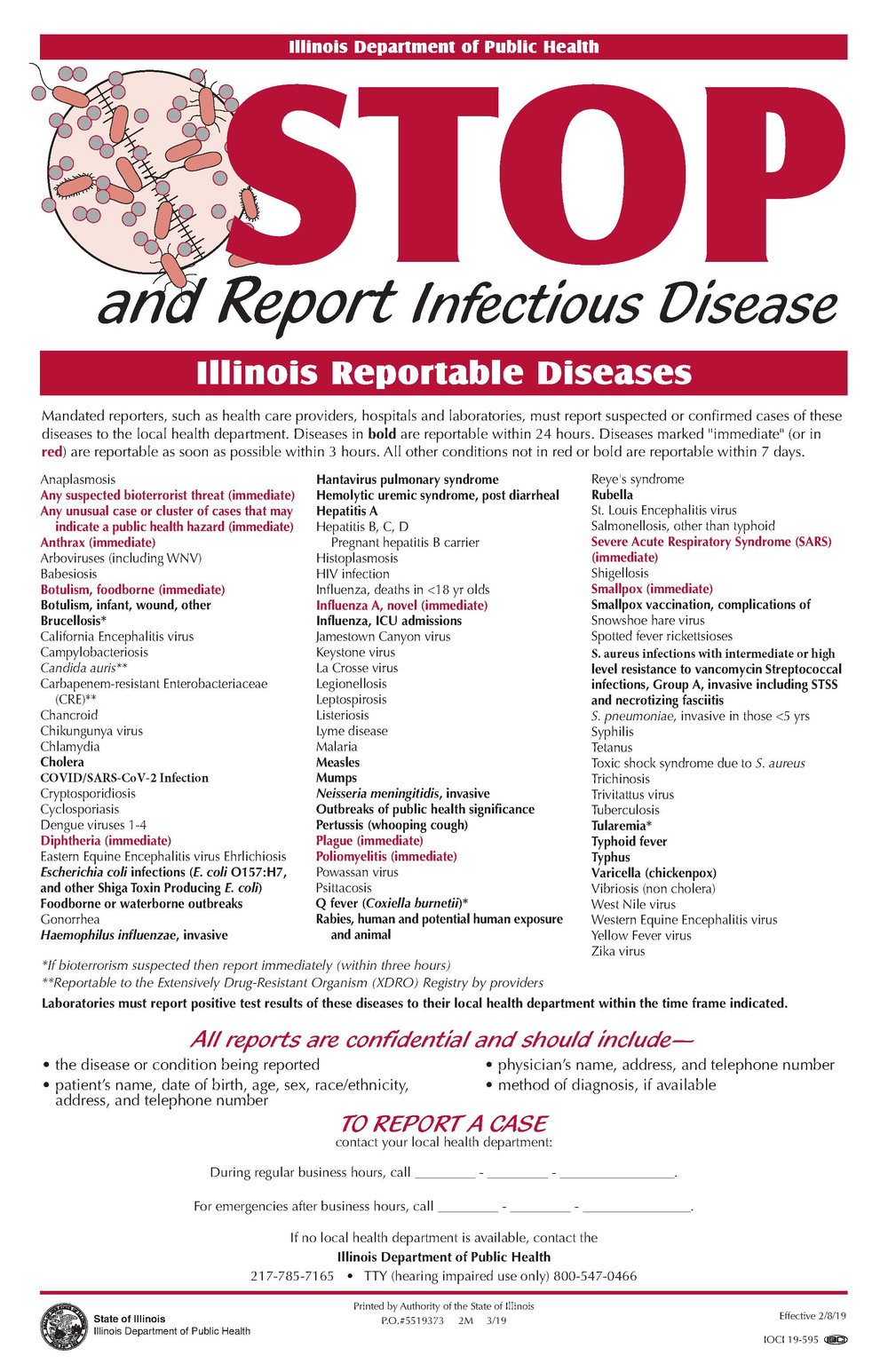Nursing
The Nursing & Family Services Division provides several programs critical to supporting a healthy community. Information on these programs can be accessed by clicking on the program names below. WIC is also a vital piece of the Nursing and Family Services Division. For WIC program information, click here.
Immunizations
JCHD provides a variety of immunizations to protect children and adults from diseases. For information on flu vaccinations, see those pages of our website. JCHD is a proud partner in the Vaccines for Children (VFC) program, which is federally funded program that provides vaccines at no cost to children who might otherwise be vaccinated because of inability to pay.
JCHD administers vaccines recommended by the CDC’s Advisory Committee on Immunization Practices (ACIP). These include Tdap (tetanus, diphtheria, and acellular pertussis), meningococcal, and HPV (Human Papillomavirus) vaccines among others. To see more about vaccines we administer or immunizations required for attending schools in Illinois, please visit the IDPH website.
Be aware that in some situations, people who are immunocompromised or have other serious health conditions may need to follow different guidelines or be vaccinated more frequently. Spacing of vaccine doses around receipt of blood transfusions, immunoglobins, or chemotherapy agents may also require special consideration.
Cash, check, credit or debit cards accepted. Most insurance plans, including Medical Cards and Medicare are accepted.
COVID-19 Vaccinations
JCHD offers vaccines to protect against COVID-19, including Pfizer and Moderna. We offer the updated 2023-2024 Covid-19 vaccines that were introduced in September of 2023. JCHD carries Covid-19 vaccine for anyone age 6 months and up. COVID-19 vaccinations are offered by appointment Monday – Friday. Late appointments available on Tuesday until 5:30 pm. Book an appointment by clicking here or by calling 618-684-3143 ext.150.
COVID-19 vaccinations are no longer provided free of charge, but JCHD accepts most types of health insurance. The Bridge Access program covers Covid vaccines for those who are uninsured or underinsured. Please bring your vaccination card at the time of service. A seasonal flu shot is also available at the same appointment for those who are eligible. Flu shots do have an associated charge as well.
Flu Vaccinations
Seasonal influenza (flu) is a contagious respiratory illness caused by influenza viruses that infect the nose, throat, and lungs. Some people, such as people 65 years and older, young children, and people with certain health conditions, are at higher risk of serious flu complications. There are two main types of influenza (flu) viruses: type A and B. The best way to reduce the risk of flu and its potentially serious complications is by getting vaccinated each year
JCHD administers flu vaccinations from late September through early spring. (Typically flu vaccines are available through May.) Flu vaccinations are offered by appointment Monday-Friday. Book an appointment by clicking here or by calling 618-684-3143, ext.150. Flu shots are recommended for everyone ages 6 months and older. High-dose flu shots are available to those ages 65 or older. Flu vaccination is free for anyone with Medicare B, Medicaid, State employees, and state retirees upon presentations. JCHD also accepts most types of health insurance, so please bring you insurance card at the time of service. Vaccination fees can also be paid by cash, check, debit or credit card. A COVID-19 booster is also available at the same appointment for those who are eligible.
RSV
CDC recommends RSV vaccines to protect adults ages 60 and older from severe RSV, using shared clinical decision-making. To protect infants from severe RSV, CDC recommends an RSV vaccine for people who are 32–36 weeks pregnant or a monoclonal antibody given to the baby after birth.
JCHD carries Arexvy, the RSV vaccine indicated for the prevention of lower respiratory tract disease caused by respiratory syncytial virus in adults aged 60 and older with certain comorbidities. The Advisory Committee on Immunization Practices (ACIP) recommends a single dose of RSV vaccine for adults over 60 years and older, using shared clinical decision-making. Shared clinical decision-making recommendations are individually based and informed by a decision process between the healthcare provider and the patient. The RSV vaccine for older adults is available year-round. Book an appointment by clicking here or by calling 618-684-3143 ext.150.
JCHD offers Abrysvo, a maternal RSV vaccine indicated for pregnant individuals at 32 through 36 weeks gestational age to help protect newborns from severe RSV. This is available upon request September 1st – January 31st only. It will be special ordered and an appointment made. Call 618-684-3143 ext.150 to schedule.
JCHD carries Nirsevimab (Beyfortus) a long-acting monoclonal antibody immunization recommended for preventing RSV-associated lower respiratory tract disease in young children. A single dose of nirsevimab is recommended to all infants aged less than 8 months, as well as children aged 8 through 19 months at increased risk. Please discuss with your physician to see if your child meets increased risk criteria. Nirsevimab for RSV is available to young children during RSV season only (September 1st- March 31st.) Call 618-684-3143 ext.150 to schedule.
Pregnancy Testing
JCHD provides pregnancy testing. This is a urine test, not a blood test. There is a $35 fee for service, or we can bill the Illinois Medical Card.
Referrals and counseling provided for:
WIC
STD Testing (sexually transmitted diseases)
Prenatal Care
Information for free birth control
Pregnancy options
HIV
Tuberculosis & TB Skin Tests
Tuberculosis is a disease caused by bacteria that is spread from person to person through the air.
People who have latent TB become infected but do not get sick, do not have any symptoms, and cannot spread TB bacteria to others. Some people with latent TB go on to develop active TB disease.
People who have active TB disease may feel sick, have signs and symptoms, and may spread TB bacteria to others.
TB Skin Test
TB skin tests are given Monday, Tuesday, Wednesday, and Fridays at JCHD. No TB skin tests are administered on Thursdays.
The TB skin test (sometimes referred to as a Mantoux test or a PPD) is performed by injecting a small amount of fluid, called tuberculin, into the skin in the lower part of the arm. A person given the tuberculin skin test must return within 48 to 72 hours to have a trained health care worker look for a reaction on the arm.
The result depends on the size of the raised, hard area or swelling. TB skin tests cannot be given within 30 days of a live virus vaccine.
TB Skin Test Results
Positive Skin Test: This means the person’s body was infected with TB bacteria. Additional tests are needed to determine if the person has latent TB infection or TB disease
Negative Skin Test: This means the person’s body did not react to the test, and that latent TB infection or TB disease is not likely.
Persons who have had a positive TB test or who have received, the BCG should not be tested again. Contact us at (618) 684-3142, ext. 150 for further information.
Some situations require “2 step” tests. Please check with your employer/school/etc. to see if you require a 1 step or 2 steps. If a “2 step” skin test is required, the first test is given and then read in 48-72. You return 1-3 weeks after the first test to get the second test, then return for the reading in 48-72 hours.
TB Treatment
Latent and active TB can both be treated by taking medicine . It is very important that people being treated for TB finish their medicine, which might take 6 months to a year. If medicine is not taken correctly, the germs that are still alive may become difficult to treat with the same drugs in the future.
Latent TB is treated to decrease the likelihood of its progressing to active TB in the future.
Active TB is treated to improve the health of the infected person and to decrease the risk of spreading to others.
Records are available for anyone who has been treated by the Jackson County TB Care and Treatment board for active TB or latent TB infection. Record requests should be made to 61-684-3143, ext. 150, or addressed to JCHD, Nursing Division.
What You Need To Know About Lead Poisoning
What is lead poisoning?
Lead is a toxic metal used in a variety of products and materials, including paint, vinyl mini-binds, pipes, leaded crystal, dishware, and pottery coatings. When lead is absorbed into the body, it can cause serious damage to vital organs like the brain, kidneys, nerves, and blood cells. Lead poisoning is especially harmful to children under the age of six.


What are the health effects of lead poisoning in children?
Lead interferes with the development and functioning of almost all body organs, particularly the kidneys, red blood cells, and central nervous system.
Lead poisoning is much more serious when children are exposed to lead. Since their bodies are not fully developed, lead poisoning can cause:
– Brain, liver and kidney damage
– Slowed development
– Learning or behavior problems
– Lowered intellect (or IQ)
– Hearing loss
– Restlessness
How can lead poisoning be prevented?
Since treatment options for lead poisoning are limited, it’s best to prevent lead poisoning before it has a chance to occur. Lead poisoning is preventable with proper:
Nutrition
Serve children foods with a high content of iron (such as eggs, cooked beans or red meats), calcium (such as cheese, yogurt, or cooked greens) and vitamin C (such as citrus fruits, green peppers or tomatoes. Adequate intake of these nutrients minimize lead absorption in children’s bodies.
Housekeeping
Teach and practice healthy home habits, such as hand-washing before eating and sleeping, shoe removal, washing children’s toys or other chewable surfaces, purchasing “lead-free” mini-blinds, and wet mopping and drying floors and surfaces. Hire a certified professional to safely remove lead sources from home. Make sure children and pregnant women do not stay inside a home when renovations are underway.
Personal Care
Wash your hands and your children’s hands frequently, especially before eating and sleeping.

